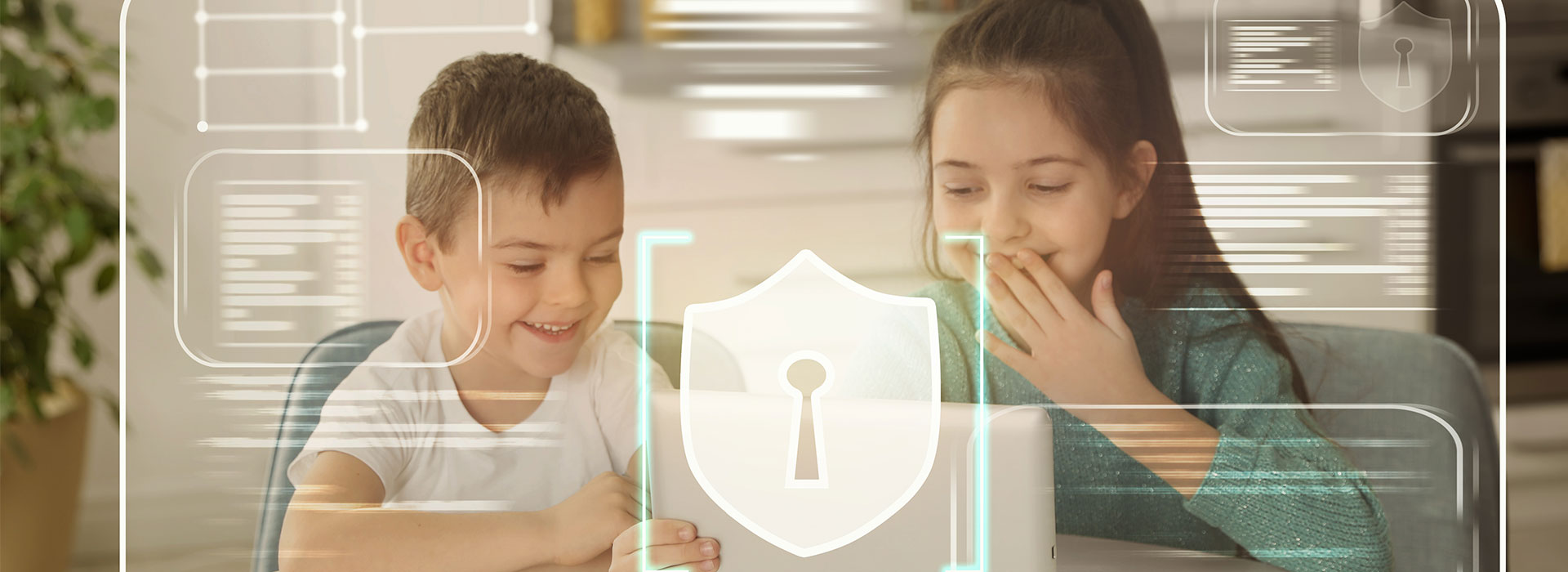

Prashant Pundir
Why Should You Teach Cyber Security to Your Child?
Update: This article was last updated on 12th September 2022 to reflect the accuracy and up-to-date information on the page.
Technology has revolutionized the world across generations and the current times highlight the significance of it. Now more than ever, going through the COVID-19 pandemic and escalating towards the virtual side of the universe, we find ourselves spending ample amounts of time on the internet.
We have the option of staying at home and working at our own convenience. The pandemic changed the way children are educated, as the education sector completely relied on online learning during this period, significantly increasing the duration children spend on the internet as compared to before.
It is not just for their academic purposes and attending classes, but the monotony of the process can also lead to a lot more surfing. With the increasing dependency on the online world and applications, basic cyber awareness is the need of the hour.
Why is Teaching Students About Cyber Security So Important?
Safety is not just an essential element of the physical world, but also the virtual world. We are going through extraordinary times where we have to rely heavily on our internet-enabled devices to communicate with the world. Today’s generation belongs to the digital native. They have the capacity to understand the trials and tribulations of the internet. However, it is important for us to remind them of their safety as they navigate through the web. Children attend online classes, search the internet for their academic assignments, interact on social media, play video games, and so much more. As the internet presents itself as a great platform for information and growth, children can find themselves vulnerable in the digital world and probably not take into consideration or be completely unaware of its various flaws and dangers. Therefore, it is the responsibility of parents and teachers to create awareness about the potential dangers and inherent flaws of the online world. Children can very easily come across harmful encounters on the internet with such heavy usage. Parents and teachers must take the onus and teach them how to make educated decisions on safely using technology on a daily basis. It is important for children to understand that with a bit of carelessness, they can go through bad experiences just like in real life.COPPA (Children’s Online Privacy and Protection Act)
Children’s Online Privacy and Protection Act, more commonly known as COPPA, is a law dealing with how websites, apps, and other online operators collect data and personal information from children under the age of 13. COPPA has a number of requirements, but some key ones are that the tech companies making apps, websites, and online tools for children under 13 years must:- Provide notice and get parental consent before collecting information from kids;
- Have a “clear and comprehensive” privacy policy;
- And keep the information they collect from kids confidential and secure.
What Schools and Teachers Should Look for?
A lot of apps and sites claim to be COPPA-compliant. How do you verify it? Here’s a checklist of things to look for:- Is the app or site certified as COPPA-compliant by a trusted third party?
- Does the app or site demand verifiable parental consent for account creation if the child is 13 years old or younger?
- Does the developer or site operator present a privacy policy highlighting what personal data it collects, the usage of the data, and whether or not it is shared with third parties?
- In that privacy policy, does the developer or site operator transparently explain how users may access, review and delete their personal information?
Important Cybersecurity Lessons and Activities to Teach Kids
Teaching children cybersecurity lessons at an early age and helping them understand the nitty-gritty of the internet is the right step towards keeping them safe and also helping them build potential STEM careers.
Increase Awareness
Start with the basics. Define computer terms such as cyberbullying, phishing, netiquette, virus protection, etc. through online games and videos and help them establish a basic understanding of staying safe in the digital world. It is essential for children to understand privacy, computer security, and social media safety at an early age.Protect Your Child’s Identity
Help your child understand that they should never share personal information such as name, address, contact number with anyone unknown to them through their social media such as Facebook, Instagram, LinkedIn, etc. Remind them of the potential dangers of sharing personal information and pictures into unknown chat rooms and how it can lead to severe consequences. Online games are a great way to teach children the ramifications of stolen identity.Secure the Devices
Always keep the common system in your house upgraded to the latest updates. This helps eliminate cyber threats and protects personal and financial details.Create Unique Passwords
Password protection is a crucial element of cyberspace. It is important to create strong passwords as they are the first line of defense and their strength cannot be compromised. Tell your child to create different passwords for all their social media handles. When making a password, they should keep these tips in mind:- Use at least 8 characters (14 is best!).
- Use a variety of numbers, letters (lower and upper case), and symbols.
- Don’t use predictable capitalization. Instead of just capitalizing the first letter, scatter capitalization throughout.
- Don’t use the same password for multiple accounts.
- Don’t use your name or anyone else’s name.
- Don’t use words from the dictionary.
- If you can’t come up with a good password, use a secure password generator.
- Change your password every 10 weeks.
Monitor Online Activity
It is important for you to monitor your child’s online activities. Frequently take a look at various parental controls and see what option works the best for you. Use these controls to save your child from falling into any unnecessary traps of the online world.Prevent Cyberbullying
Cyberbullying is a common phenomenon on the internet and can have serious psychological effects on a child. Abusive comments, spreading rumors, threatening, and even impersonating someone using a fake account are some of the ways of damaging someone’s online reputation. Teach your children to think twice before they post anything on social media about themselves as well as other people, and whether their posts could be deemed derogatory or unjust. Moreover, create a healthy environment in the house so that your child can come to you and talk in case of any cyberbullying.Find Out What Malware Is
As children surf the internet and download various media files, they should be aware of the malicious software that can infect their devices. There are many different types of malware, including:- Viruses
- Worms
- Trojan horse
- Spyware
- Adware
- Ransomware
Restrict Access from Public Networks
Free Wi-Fi can seem very appealing but it is important for children to understand the danger of using unsecured public networks. Potential attackers could be looking to steal the data through unsecured networks. Instruct your child to avoid using such networks as much as possible to keep their personal information protected. How do you make sure your child is safe on the internet? Do you have any other ways? Let us know in the comments.Share this post
Share on facebook
Share on twitter
Share on linkedin
Share on pinterest
Share on email










